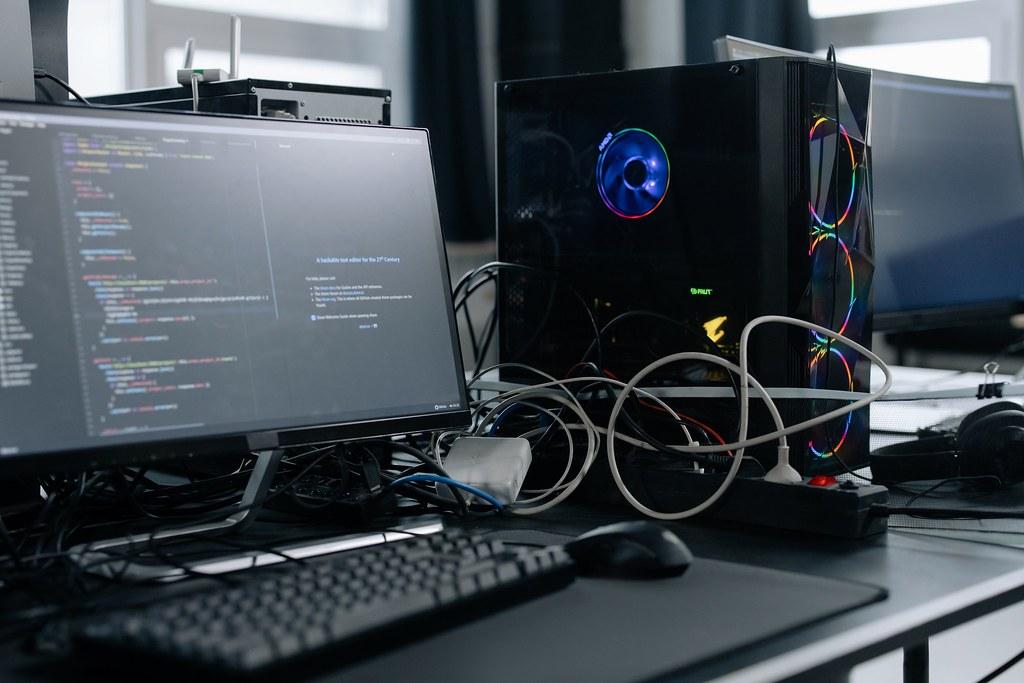You’ve probably used chatbots somewhere, but have you ever wondered who’s behind those smart tools? It’s the AI trainer. I’m working in this role. And you know what? This job is not only about making accurate answers. I have to also create efficient conversations to meet consumer needs.
So, how to become an artificial intelligence trainer to build such amazing chatbots? Well, I can get you covered! I will discuss what you will do and which skills you need for this job.
Job Overview
AI (Artificial Intelligence) training is about teaching AI systems to understand data and make intelligent decisions. The AI trainer is responsible for this task.
Who is an AI Trainer?
An AI trainer trains virtual agents and chatbots. Then, these systems can respond quickly and accurately to users’ inquiries.
Let’s talk about the case of a chatbot. The AI trainer creates, trains, and deploys automated conversations in different contexts and languages. So when users ask a question, the chatbot can reply and solve their problem.

Responsibilities
As an AI trainer, I’m in charge of developing those AI systems. My ultimate goal is to ensure they can work well with user requests and inputs.
Data is essential in AI training. I collect it and then use it to build unbiased and organized data sets. There are some entities in databases, so I have to identify them too.
My boss also asked me to build NLU and NLP models. After development, I have to name each training phrase by linking them with intents.
Skills and Requirements
You must have a solid foundation in computer science, data analysis, mathematics, or a relevant field. A bachelor’s degree is enough for an entry-level position. Yet, you may want to get a master’s or even a PhD to level up.
You should also be good at coding. This job also demands other skills like critical thinking and problem-solving. So prepare them now to get ready for your future career.
Working Environments
Many businesses use AI technology for different purposes. It means you have many job chances. The working environment will be different, too.
I’m working for a telecommunication company. In this role, I automate customer service tasks. For example, I develop chatbots to help customers with issues.
AI is also prevalent in healthcare. Healthcare providers may need this technology to develop drugs and conduct research. So when you work for these organizations, you can cover those tasks.
How to Become an AI Trainer?
To be honest, it’s not easy to become an AI trainer. I have to take a long journey until I can work in this role. I will share my experience with you now. You can try it or build your own map. But remember to stick to the requirements below.
1. Graduate from Related Fields
You first need at least a bachelor’s degree. You can try majors like computer science, data management, or data analysis. They are all related to your future job as an AI trainer.
However, please note that this degree is only suitable for entry-position levels. Most AI trainers these days have a master’s degree.
Your bachelor’s degree covers all the basic concepts of computers. However, the core of your job is AI, which requires deeper knowledge. That’s why I spent years on the master’s degree to explore it.
But keep calm! It doesn’t mean that you need a master’s degree right now. Just get the bachelor’s first. Then, gradually work your way up.

2. Get Some Vital Certifications
You need to get certifications because they will be your big points to highlight when applying for an AI trainer job.
Certifications in AI allow you to focus on specific concepts, like data science, robotics, or machine learning. They all set you apart from other talents.
You have many choices for your AI certifications. I like the following the best, and I have taken some of them.
Coursera
You may have heard about this famous learning platform. It has got that much fame for a reason. Coursera is now working with more than 150 universities. You can find thousands of courses and AI programs are numerous here.
You can try the “AI for Everyone” course if you are new to this industry. It will teach you how to start an AI career.
Once you’ve completed that course, consider the Deep Learning program. During the program, you can learn how to run real-life projects. You can even build your neural networks.
Stanford University
The popularity of Stanford is undeniable. Thus, you can trust the quality of their certifications.
The AI certificate from Stanford requires you to have a bachelor’s degree and experience in coding. Then, it asks you to choose the techniques of AI or machine learning. You can pick both.
After that, you will access a list of courses to choose from. They cover many interesting topics like computer vision, NLP, and robotics. It’s fun to decide what you will learn, right?
IBM
This free course offers you a look at multiple kinds of AI techniques. The instructors also help you use AI tools to develop deep learning systems.
Yet, you should have experience in Python and be good at mathematics to take the course. Another thing I like about this course is the short training time. If you work ten hours a week, you can finish it in just two months.

3. Improve Necessary Skills
Skills will help you shine in your role. The most important ones for your job are:
Analytical skills
You will work with a lot of data. As an AI trainer, you have to gather and analyze it. Then, find the best way to store it efficiently and securely. This way, you can use it properly to solve problems in AI systems.
Thus, practice your analytical skills. They refer to how well you can research and interpret data. Then, you will easily develop ideas based on it.
Communication
You don’t work alone. Your colleagues are AI developers, designers, and product managers. Hence, you need good communication skills to collaborate with them smoothly.
Sometimes, you have to explain complicated concepts in your project to non-tech people. So try to understand their needs and use the simple words to help them.
Problem-solving
I often encounter problems, even when I’ve gotten used to my tasks. They are unavoidable. As an AI trainer, you can only learn how to solve them and prevent them from happening to you again. That’s why you should train yourself to be a good problem-solver.

4. Learn Technical Skills Through Courses
You can use your favorite toolkit at work. As long as it helps with your tasks, feel free to choose any. Learning how to use them can also help develop your technical skills.
But if you don’t know which to pick, check these must-have tools for AI trainers. Then, keep practicing. They will be your powerful assistants in the future.
NLP engines
As an AI trainer, you have to focus on building intelligent conversations. This task is really complex, so I recommend these tools to simplify it:
- Google Dialogflow: This tool is my best friend. It helps me create conversational interfaces and then integrate them into different devices and apps. I also like the NLU toolkit here, as it’s ideal for building AI models.
- Amazon Lex: When I first used this tool, I was surprised because of the natural interactions it could create. The lifelike accuracy of its conversations now still amazes me. I keep exploring it and realize that I can even develop a voice-driven app using the speech recognition feature.
- IBM Watson: This tool works with advanced algorithms and NLP to create accurate answers. Moreover, it can even suggest solutions to improve the answer’s accuracy.
Language models
Working with data is important in AI training. Thus, I use these tools to optimize this task:
- GPT-3: Even non-tech people know this famous AI tool. It works on deep learning to create human-like answers to your questions.
- Cohere.ai: I often use Cohere.ai to generate and analyze texts for copywriting or data extraction. Features like real-time insights and data validation also help me a lot.
- AI21 Studio: If you are looking for a comprehensive platform for AI training, grab this tool. It’s among the best options for building chatbots.
Reporting tools
Reporting is crucial, as it turns complex technical stuff into simple things so everyone can understand. You need it to gain insights into the collected data.
But this task often takes time because it must be accurate. Sounds tricky, right? So try these tools to nail it:
- PowerBI: I use PowerBI almost every day. It helps me convert raw data into useful insights so others can understand my AI models easily. You should try it, too.
- Dashbot Report: This tool is ideal for data processing. It allows me to view real-time data and trends.
- Tableau: The most potent tool for informative reports. The drag-and-drop interface helps you create datasets quickly. That way, you can extract and store data seamlessly.

5. Gain Experience from Entry-Level Positions
Now you have the necessary skills. So, you can apply for an entry-level position in AI training. It can be an AI research assistant or intern.
These jobs help you learn by doing. Then, you can understand the challenges and best practices to use in AI training.
You will surely make mistakes. But the key here is what you can learn from them. This experience is valuable when training others, as you can anticipate pitfalls from your trainees.
Another benefit of these jobs is networking. You have a chance to work with many experts in AI training. They can give you valuable advice.

6. Search for an AI Trainer Position
If you perform well as an assistant, your company may offer a promotion. But if it doesn’t, while you are confident about what you have now, apply for an AI trainer position in another company.
You can find job openings on social media or job search websites. Your friends may also introduce you to some job chances.
This final step takes time. So don’t give up soon. While searching for a chance, keep working and doing well in your current job.
Job Outlook and Salary
In 2024, an AI trainer can make up to $92,440 per year. But your salary depends on your location, education level, scope of work, and experience.
This job is in high demand because AI has been growing significantly in many industries. As more companies adopt this technology, the need for skilled AI trainers also increases.

FAQs
1. What is the job of an AI trainer?
Generally, an AI trainer educates conversational interfaces to respond to user inquiries correctly. This task involves handling data to represent the knowledge of a voice assistant or chatbot.
2. How to get a job in AI without a degree?
Yes. Instead of obtaining a degree, you can try coding bootcamps. They offer AI courses that equip you with the knowledge needed for your career.
3. Is AI training a stressful job?
Yes, but the stress level is not really high. It would be best to learn how to manage your time effectively. Then, you can avoid stress.
4. What are some difficulties for an AI trainer?
When working as an AI trainer, you will face these challenges:
- Cost requirements
- Bias-related issues
- Working with complex datasets
- Unexpected inputs
5. What makes a good AI trainer?
To be a good AI trainer, you need strong analytical and problem-solving skills. Also, build strong knowledge of AI and machine learning, especially chatbot metrics.
Final Thoughts
AI training is a dynamic field. To become a good AI trainer, you must study relevant areas like data management or computer science. Then, earn some certifications, hone your skills, and gain experience.
So, are you ready for the challenges ahead? If yes, follow your passion and make your dream come true!
